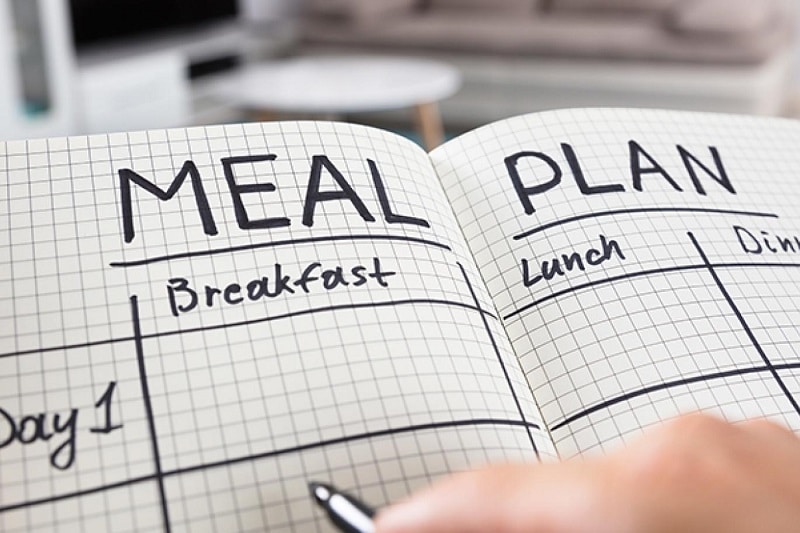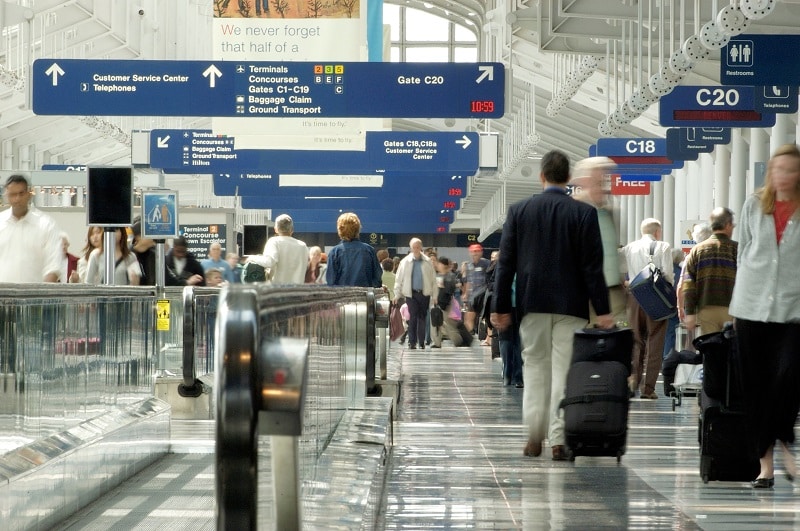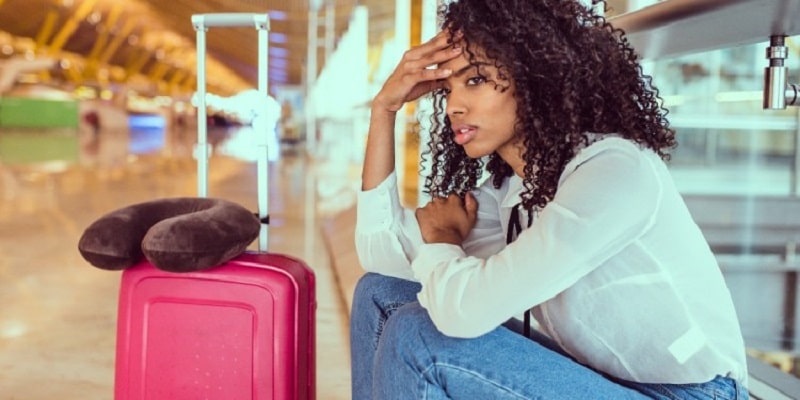Travel is a beautiful gift. It makes us feel more connected to the world, has the potential to inspire us in ways we could never have imagined, and assists us in developing closer relationships with the people we care about along the journey. But it has the potential to leave us feeling anxious and agitated.
Anxiety over travelling is not anything to be upset about; if you experience it, you are not the only one who does so. According to experts, anxiety disorders affect around 18% of the population in the United States. You need help preparing for or managing many stressful situations, such as being stuck in traffic or having your baggage misplaced due to the weather. While you’re also travelling, things that take place significantly influence the rest of your day and life.
There are, however, specific resources that you may add to your armoury to improve your mental health. Here are seven strategies to help you reduce the stress associated with travelling and travel anxiety.
Bring along something that makes you happy
Those prone to travel anxiety bring at least one thing with them that brightens their mood, regardless of what that may be. So consider a few items you may bring along with you that will help make the experience either joyous or soothing.
We’ll urge you to think of activities you love, such as finding a new book to read, a new television program you’ve wanted to watch, a podcast, or anything else to occupy you that will make travelling more enjoyable.
Channel anxious energy
Are you experiencing a loss of control? Find a way to divert your attention, especially something that will keep your hands occupied. Find an activity you can do with your hands, such as knitting, colouring, needlepoint, writing letters or postcards, or journaling, so you may channel the nervous energy you feel. That allows you to be creative and utilize your time on transportation in a rewarding manner.
Make a plan for your meals
For several different reasons, food may be a source of stress. Perhaps you’ve worked up an appetite while travelling. You may need help finding meal selections that appeal to you.

Kindly consider what you want to consume in the future and make your plans appropriately. For example, you need to bring some food for the trip. Or, if you dine out, consider what foods you may like.
Give yourself some additional time to prepare ahead
The last thing you want to do is add stress to your already hectic schedule by showing up late. It is wise to build in some buffer time when travelling. “Recent years have seen a significant increase in the anxiety associated with travel, particularly air travel.
Give yourself time to prepare ahead if delays or other unexpected things arise. Your trip will seem much less stressful if you have the extra buffer time. If you have excessive spare time, find something productive to do, such as meeting up with a friend or loved one or taking a stroll around the airport or railway station.
Try calming breathing techniques
What activity can you carry out whenever and wherever you like? Take a few full breaths in here. We advocate that deep breathing, mindfulness, and meditation are tremendous benefits.
When feeling anxious or stressed, we find that practising diaphragmatic breathing helps. It is a kind of breathing that goes more profound, and the physical component of it may be beneficial in releasing tension.
Keep your body moving
Moving about a little bit is another thing you can do to get your body ready for a trip without stress. “Getting your blood pumping and your muscles moving is one of the most effective ways to relieve stress.

We recommend that even as little as five minutes here and there may be of great assistance. It’s opting to use the escalator instead of the stairs or brisk walking around the airport terminal as you wait for your flight. Movements have the potential to alter the game completely.
Make sure you have a backup plan
One other thing you can do to lessen the likelihood of encountering travel stress is to ensure that you always have a backup plan so you are never left in the lurch. When balancing work and family duties, you have an emergency plan in place is helpful.
Before you start your trip, kindly make sure you have a plan B in place in case your flight back home is cancelled. Because you already know what you’re going to do, having a “crisis plan” in place might make it easier to deal with stressful situations.
Don’t hesitate to seek the assistance of a specialist
Still feeling overwhelmed? Ask for aid. “We think it is hitting the level where a professional can help if it gets to the level where your stress prevents you from travelling. Suppose it is at the level where it is prohibiting you from travelling.
You should schedule an appointment with your therapist to overcome any obstacles so that you can instead concentrate on enjoying the finest vacation experience of your life.
Bring a travel companion along
Bring a travel companion with you if travelling by yourself causes you to feel anxious. If you take a trip with a companion, certain activities can be enjoyed with a partner or in a group setting.

When you are with someone who makes you feel at ease, you can discover that you are more outgoing and willing to try new things. By the time the journey is through, you could even have a few new friends with whom you might take future tours.
Delegate tasks at home while you are abroad
The very idea of going somewhere new might bring on feelings of dread in some individuals. Likewise, leaving home, the children or the pets alone might bring on intense feelings of worry. However, preparing for your time away from home in the same manner that you planned for your vacation might help lessen that concern.
Employ a home nursemaid or ask a trusted friend to remain at your residence while you are gone so that they can assist you in taking care of your responsibilities. While you are away from your home, children, or pets, a reliable sitter will keep you apprised of developments and maintain open lines of contact with you.
Talk to your physician
Talk to a physician if you’re dealing with concerns like a fear of open spaces (agoraphobia) or flying (aviophobia or aerophobia). Your primary care physician will be the best person to identify whether an underlying issue exacerbates your travel worry.
Conclusion
Those suffering from travel anxiety may experience discomfort, a high heart rate, or excessive perspiration. Anxious travellers could also become apprehensive when on specific modes of transportation, in an unknown location, or experiencing something strange.
Even though it is natural to worry when confronted with novel circumstances, like travelling, there are a couple of ways to stay ahead of the problem. Hopefully, our guide has been helpful.



